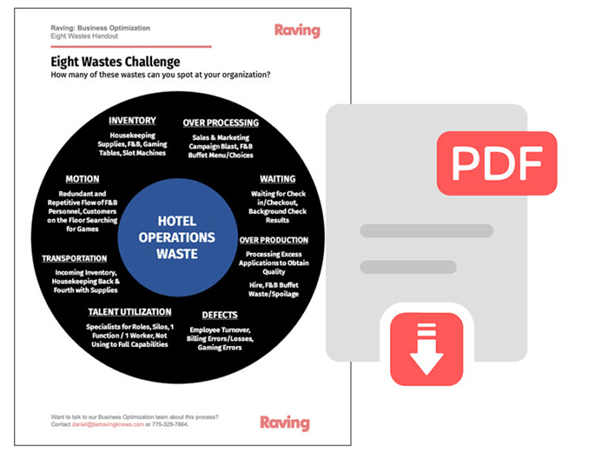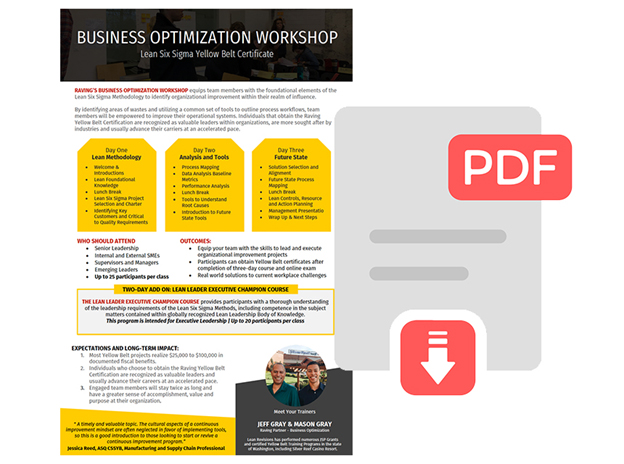Is there a step-by-step roadmap to follow for the successful implementation and sustainment of Lean Operations Management within the Tribal gaming and hospitality industry? The answer is an astounding YES!
Lean Operations Management is not a new concept for the gaming and hospitality industry. Harrah’s Entertainment, Caesars Entertainment, MGM Resorts International and Starwood Hotels and Resorts have been successfully using the proven methodology (roadmap) for over 20 years with amazing results and profitable benefits. Starwood Hotels & Resorts starting in the first quarter of 2001 was the first gaming and hospitality entity to implement Lean Operations Management. 20 years later, Starwood has expanded global operations, acquired multiple properties including hotels, casinos, restaurants, night clubs and other popular venues.
This over 20 year expansion and growth could not have been as robust and sustained without following the Lean Operations Management methodology that focuses on bringing exceptional value to every aspect of the customer experience without adding additional resources, operating costs or strain on the usually overburdened workforce. In contrary, buy focusing on the customer, every function, process and customer facing procedure concentrates on the most efficient and effective service guests will ever encounter while visiting their establishment. This cultural mindset allows organizations to do more with what they have, become more innovative, retain competitive advantage in an ever changing market and outshine the competition.
How Does it Work?
Lean Operations Management is a business methodology that combines two powerful approaches: Lean and Six Sigma. Lean is a set of tools and techniques used to reduce waste and operating expenses while focusing on increasing organizational efficiency. Six Sigma is a set of tools and techniques used to streamline and standardize end to end internal operations that improve customer value and quality of service. Together, Lean Six Sigma helps organizations reduce costs, improve customer satisfaction, and increase net profit margins.
The Roadmap to Success
Step 1. Discovery & Gemba Walk A popular approach in organizations who implement Lean Operations Management principles is called “Gemba Walks,” which denote the action of going to see the actual processes, procedures and systems to understand the work, ask questions, and learn from those who do the work. It is an opportunity for leadership, management and support staff to walk the floor, spend time (30-60 minutes) engaging in the operational task, and experience their workplace to identify costly wasteful operational activities. The objective is to understand the value stream and its problems, uncover negative financial issues and prioritize Lean projects that strategically align with driving out business issues while adding value to customers, the workforce and every business operation.
Download the Eight Wastes Challenge today!
Step 2. Align on Your KPIs Top leadership and business line managers need to be trained to align and prioritize improvement projects to Strategic Key Performance Indicators (KPI’s). Leadership needs to gain knowledge and skills to lead and align organizational improvement teams to execute small, medium and enterprise wide projects throughout the organization. Once trained, leaders will also be able to engage and extend these applications to the entire E2E internal and external supporting organizations and supply chain. These skills ensures leadership will drive change, foster inclusion, and build a solid infrastructure for a sustained Lean transformation within the Tribal Gaming and Hospitality Industry.
Step 3. Project Team Selection and Training Training current and future leaders is imperative, building and sustaining a highly skilled workforce that is well versed in the foundational elements of the Lean Operations Methodology ensures successful implementation of strategic organizational improvement projects throughout the organization.
Start small, gain skills and knowledge to execute one to five-day Kaizen “Rapid Execution” Events within the scope of the improvement team’s business line and responsibility. Depending on the size and scope, most “KAIZEN” projects realize $25,000 to $100,000 in documented fiscal benefits. Within a short amount of time, these current and future leaders will be able to tackle and eliminate larger challenges the organization has been experiencing for years.
Team Training and Support to Execute Projects
Take your first step on this roadmap and start practicing Lean Management! Raving offers a three-day custom training program that equips your team with the ability to approach complex processes in a solutions-based mindset.






